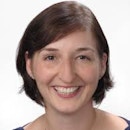Understanding How Biological Cells Self-Organize Into Organs and Organisms
- Speaker
-
 Lisa Manning, Ph.D.William R. Kenan, Jr. Professor of Physics, Syracuse University
Lisa Manning, Ph.D.William R. Kenan, Jr. Professor of Physics, Syracuse University
Presidential Lectures are free public colloquia centered on four main themes: Biology, Physics, Mathematics and Computer Science, and Neuroscience and Autism Science. These curated, high-level scientific talks feature leading scientists and mathematicians and are intended to foster discourse and drive discovery among the broader NYC-area research community. We invite those interested in the topic to join us for this weekly lecture series.
In multicellular organisms, properly programmed collective motion is required to form tissues and organs. Such programming breaks down in diseases like cancer. Recent experimental work highlights that some organisms tune the global mechanical properties of a tissue across a fluid-solid transition to allow or prohibit cell motion and control processes such as body axis elongation. Researchers have also begun to try to understand how these collective behaviors are robustly programmed, as instructions for constructing large-scale structures such as organs are encoded at the much smaller scale of molecules.
In this Presidential Lecture, M. Lisa Manning will highlight universal features that emerge from models developed to predict collective cell behavior and discuss how the origin of rigidity in tissues is similar to that in mechanical metamaterials, like origami, and different from those in standard materials like glasses or granular matter. Manning will also discuss recent progress in ‘bottom-up’ approaches that identify cell- and molecular-scale rules resulting in complex emergent behavior, as well as ‘top-down’ approaches that use new physical learning paradigms to predict how tissues should tune cell-scale properties to optimize their collective response.
